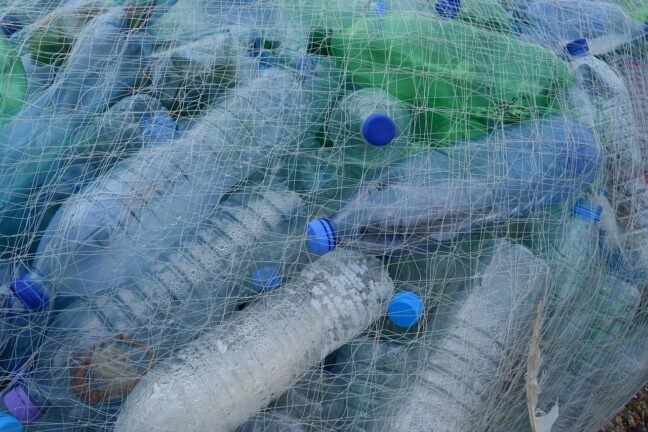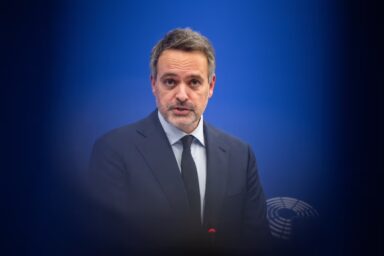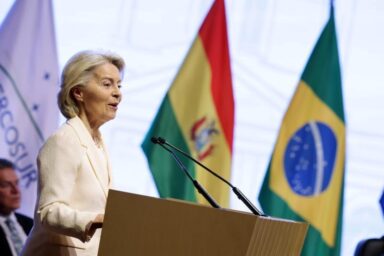Geneva’s plastic pollution summit ended in stalemate this week as 184 countries failed to agree on a treaty to address the crisis. Delegates left without a draft text to finalise. The failure marks a setback for those who are in favour of global environmental solutions.
Hundreds of delegates to the sixth round of negotiations on the UN plastics treaty (Intergovernmental Negotiating Committee on the Global Plastics Treaty, or INC-5) spent ten days—and an extra night—of talks in Switzerland. The result is precisely zero. Talks collapsed over fundamental divides: whether to cap plastic production or focus on waste management, and how strictly to regulate toxic chemicals in plastics.
Two visions
The impasse crystallised around two competing visions. The High Ambition Coalition—including the EU, Britain, Canada, and African and Latin American states—pushed for binding production cuts and chemical phaseouts. Opposing them, the Like-Minded Group—Saudi Arabia, Kuwait, Russia, Iran, Malaysia, and others—insisted the treaty focus more narrowly on recycling and reuse.
Luis Vayas Valdivieso, chair of the negotiating committee, proposed two draft texts to bridge gaps. Both faced rejection. Delegates spent the final night reworking the language. Friday’s revised draft omitted production caps, instead acknowledging “unsustainable” plastic levels that “exceeded waste management capacities” and required a “coordinated global response”.
Jessika Roswall, the EU’s environment commissioner, conceded the draft fell short but urged pragmatism: “The Earth is not ours only. We are stewards for those who come after us.”
You might be interested
Bending the red lines
The commissioner, however, came to Switzerland with a take-no-prisoners attitude. “The EU is here to deal, but not at any cost,” Ms Roswall told journalists earlier in the week, when asked about reports the bloc was prepared to walk away if production limits were excluded from the final agreement. “If there is no agreement that is good enough, these are negotiations. That’s always an opportunity for everyone in negotiations.”
The European Union’s position at the environmental vanguard had been dented by the bloc’s travails on the same front back home. The European Commission pushed through an ambitious Green Deal during its past mandate, only to walk back many of its provisions after the policymakers realised the drive threatens Europe’s economy.
Magnus Heunicke, Denmark’s environment minister, criticised the hardline approaches presented at the summit. He noted all countries arrived with “red lines” but warned: “A compromise means bending the red lines.”
Small island states marooned
Oil-producing nations dismissed the drafts as unbalanced. Saudi Arabia and Kuwait argued production limits lay “outside the treaty’s scope”—a stance echoed by industry groups advocating waste management fixes.
Small island states, bearing disproportionate pollution impacts, voiced fury. Palau, representing 39 SIDS, lamented “repeatedly returning home with insufficient progress to show our people”. Given the fact that Palau has a population of less than 18,000—about the equivalent of a small street block in any Chinese city—it appears fair to say that nobody cares.
Many countries arrived with red lines. A compromise means bending the red lines. — Magnus Heunicke, Denmark’s environment minister
The final draft reframed the treaty’s objective to address plastics’ “full lifecycle”—a semantic win for environmentalists. But it dodged binding targets, leaving key disputes unresolved. Talks may resume later this year, but momentum has frayed.
Déjà vu
Science underscores the crisis’s roots. More than 400 million metric tons of plastic are produced globally each year, half of which is for single-use items. While 15 per cent of plastic waste is collected for recycling, only nine per cent is actually recycled. Nearly half, or 46%, ends up in landfills, while 17% is incinerated and 22% is mismanaged and becomes litter.
The 5th session of the talks finished without a deal in December 2024 in Busan, South Korea. As the Geneva summit closed with the same result. The deadlock revealed a fractured global order in which the plastic tide rises unchecked, with plastics production likely to triple by 2060.











